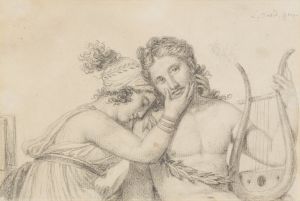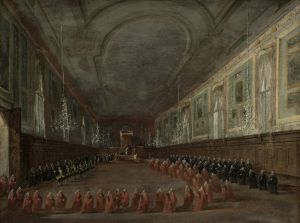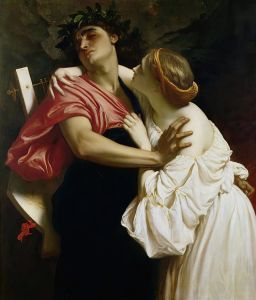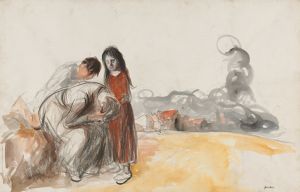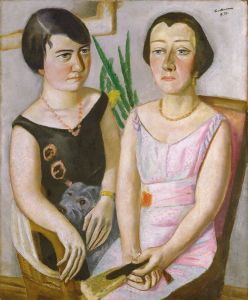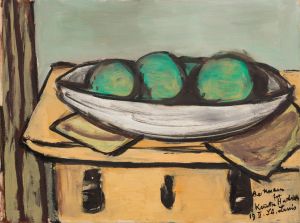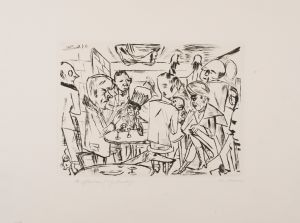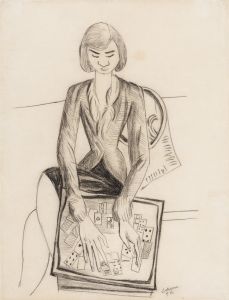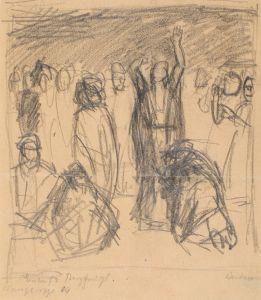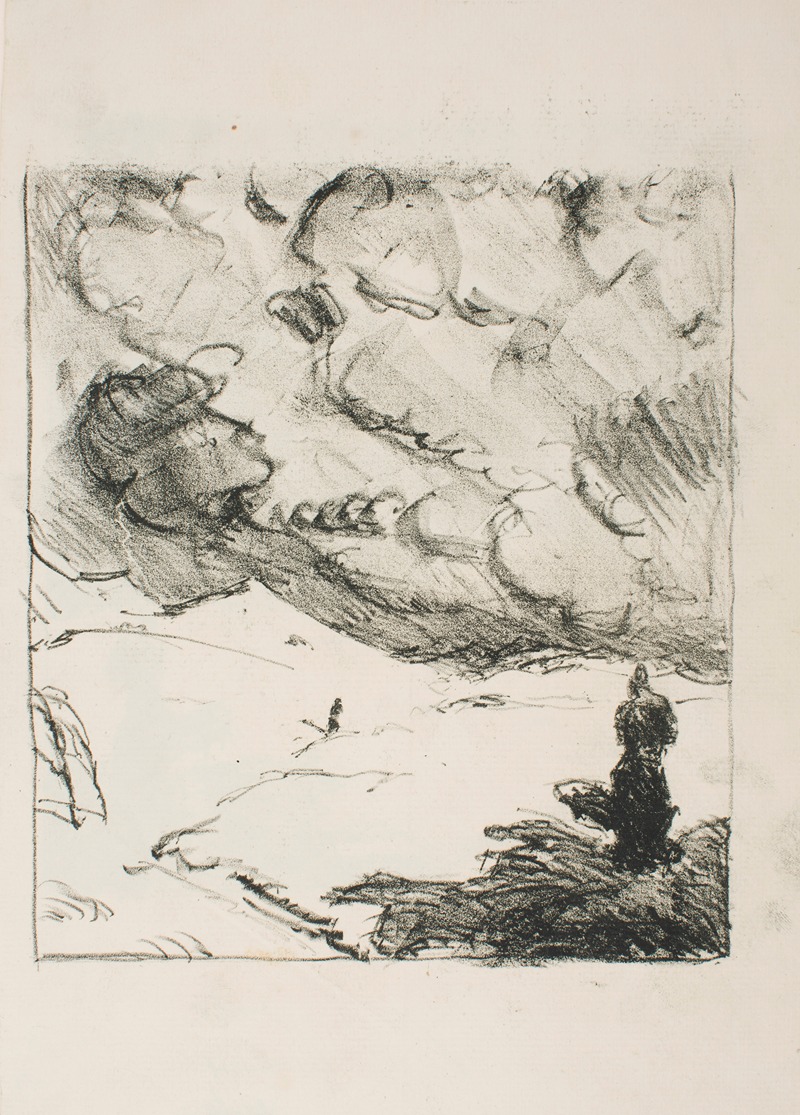
The Departure of Orpheus from His Mother, Plate 3 from the series ‘The Return of Eurydice, Three Cantos’
A hand-painted replica of Max Beckmann’s masterpiece The Departure of Orpheus from His Mother, Plate 3 from the series ‘The Return of Eurydice, Three Cantos’, meticulously crafted by professional artists to capture the true essence of the original. Each piece is created with museum-quality canvas and rare mineral pigments, carefully painted by experienced artists with delicate brushstrokes and rich, layered colors to perfectly recreate the texture of the original artwork. Unlike machine-printed reproductions, this hand-painted version brings the painting to life, infused with the artist’s emotions and skill in every stroke. Whether for personal collection or home decoration, it instantly elevates the artistic atmosphere of any space.
Max Beckmann's "The Departure of Orpheus from His Mother, Plate 3 from the series ‘The Return of Eurydice, Three Cantos’" is a notable work within the oeuvre of the German painter and printmaker. Beckmann, an influential figure in the 20th-century art world, is renowned for his unique style that blends elements of Expressionism and New Objectivity. His works often explore complex themes of mythology, existentialism, and the human condition, reflecting the turbulent times in which he lived.
This particular piece is part of a series titled "The Return of Eurydice, Three Cantos," which delves into the mythological narrative of Orpheus and Eurydice. The story of Orpheus, a legendary musician, poet, and prophet in ancient Greek mythology, is a tale of love, loss, and the transcendental power of art. According to the myth, Orpheus attempts to retrieve his beloved wife Eurydice from the underworld after her untimely death. His music is so enchanting that it softens the hearts of Hades and Persephone, the rulers of the underworld, who agree to allow Eurydice to return with him to the living world on the condition that he does not look back at her until they have both reached the surface.
"The Departure of Orpheus from His Mother" captures a poignant moment within this mythological journey. While specific details about this plate are scarce, Beckmann's work is known for its rich symbolism and emotional depth. His use of bold lines and dramatic contrasts often conveys a sense of tension and introspection, inviting viewers to engage with the psychological and emotional layers of the narrative.
Beckmann's art was significantly influenced by the socio-political upheavals of his time, including the two World Wars and the rise of totalitarian regimes in Europe. His experiences during these periods imbued his work with a sense of urgency and a profound exploration of human suffering and resilience. This context is essential to understanding the thematic undercurrents present in his series on Orpheus and Eurydice.
Throughout his career, Beckmann produced numerous works that revisited classical myths, reinterpreting them through a modern lens. His fascination with mythology allowed him to explore timeless human themes while also commenting on contemporary issues. The Orpheus and Eurydice series is a testament to his ability to weave together the mythical and the modern, creating art that resonates on multiple levels.
Max Beckmann's contributions to art extend beyond his mythological series. He was a prolific artist whose work encompassed painting, printmaking, and teaching. His legacy is marked by a distinctive style that continues to influence artists and captivate audiences worldwide. Beckmann's exploration of mythological themes, as seen in "The Departure of Orpheus from His Mother," remains a significant aspect of his artistic identity, reflecting his enduring interest in the complexities of human experience and the transformative power of art.





